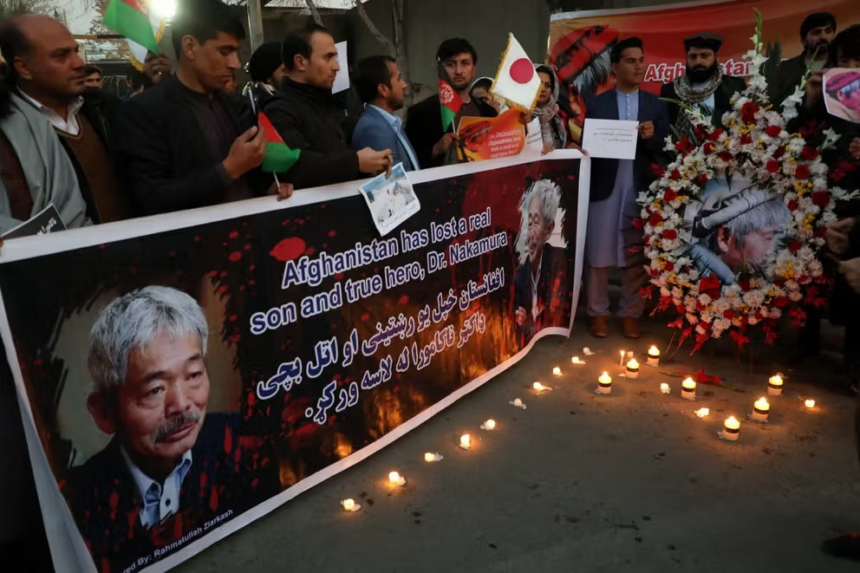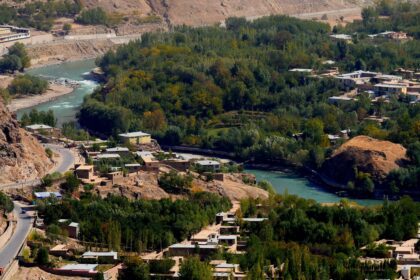RASC News Agency: In a rare and symbolically powerful development amid the humanitarian stagnation imposed by Taliban rule, the Japanese humanitarian organization Peshawar-kai has announced the long-awaited resumption of its leprosy treatment program in Afghanistan nearly 15 years after operations were halted due to growing insecurity. This revival not only aims to restore critical health services but also honors the enduring legacy of the late Dr. Tetsu Nakamura, a revered physician and humanitarian known to Afghanistanis as “Kaka Murad.” Dr. Nakamura, whose name became synonymous with dignity, compassion, and reconstruction, spent decades transforming lives across eastern Afghanistan. His work ranged from treating leprosy patients to leading large-scale irrigation projects that redefined entire landscapes. He was assassinated in 2019 in Jalalabad an act that devastated local communities and silenced one of the country’s most trusted foreign voices. Yet his vision continues to inspire. Now, Peshawar-kai seeks to fulfill his unfinished mission.
According to a report by Japan’s Yomiuri Shimbun, the organization plans to launch a comprehensive, community-based leprosy care initiative before the end of 2025. The pilot phase will focus on Nangarhar province, a region where Dr. Nakamura invested decades of his life. The program will deploy mobile medical teams, distribute essential pharmaceuticals, and provide intensive training to local health workers many of whom have been left unsupported under the Taliban’s collapsing health infrastructure. The relaunch comes at a time when Afghanistan’s healthcare system is spiraling into paralysis, crippled by international isolation, donor fatigue, and the Taliban’s regressive policies particularly those targeting women in medicine. Despite these challenges, Peshawar-kai has expressed its commitment to involving female medical staff wherever possible, acknowledging that healthcare delivery in Afghanistan, especially in rural and conservative areas, is impossible without the full inclusion of women.
“The spirit of Dr. Nakamura was rooted in equality and inclusivity,” a Peshawar-kai representative said in Tokyo. “We believe healthcare is not only a right but a necessity that transcends gender, ethnicity, or politics. We are determined to bring medical dignity back to those forgotten by the current regime.” The project’s reactivation reportedly follows a formal request issued in January 2024 by the Nangarhar provincial authorities and the Taliban-run Ministry of Public Health. While some interpret this outreach as a rare moment of pragmatism, others remain skeptical, warning that Taliban’s systemic discrimination, particularly against women professionals, continues to obstruct sustainable recovery efforts.
Although the World Health Organization recorded just 45 confirmed cases of leprosy in Afghanistan in 2017, experts warn that the true scale of the disease remains vastly underreported. With the near-total collapse of the public health monitoring system and the enduring stigma surrounding leprosy, it is highly likely that hundreds of patients remain undiagnosed and untreated often confined to remote villages, unable to access basic medical care. Under Taliban rule, such neglect is not an anomaly but a pattern. Health services have been politicized, women healthcare workers have been purged or marginalized, and medical outreach to vulnerable populations has slowed to a trickle. In this environment, international humanitarian missions are not just acts of care they are acts of resistance.
In re-entering this space, Peshawar-kai offers not only treatment, but a moral lifeline a reminder that compassion and global solidarity have not entirely forsaken Afghanistan. “Dr. Nakamura once said that one irrigation canal or one healed child was worth more than a thousand political speeches,” said one former colleague now based in Japan. “His work is not over. We are simply carrying the torch forward.” As the world debates whether and how to engage with the Taliban, the return of Peshawar-kai provides a compelling model: principled engagement rooted in human dignity, not political expediency. In the face of a regime that seeks to silence hope, this initiative quietly reignites it.






